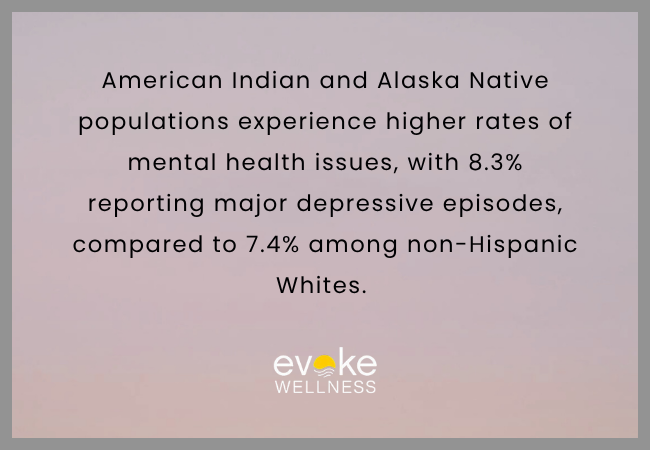In today’s rapidly evolving world, the need for equitable behavioral health care has never been more urgent. While the national conversation surrounding mental health and substance use has grown louder, it has not necessarily become more inclusive. For many individuals within marginalized communities—Black, Indigenous, and people of color (BIPOC), LGBTQ+ populations, immigrants, and economically disadvantaged groups—gaps in access to compassionate and effective behavioral health services remain painfully wide. The consequences of these disparities are both personal and collective, affecting the well-being of entire communities.
Behavioral health inequities are not new. They are the cumulative result of decades of structural inequalities, cultural misunderstandings, stigma, and systemic underinvestment in communities already burdened by generational trauma and oppression. But with the emergence of equity-driven clinical models, there is hope. These models are not just about expanding access—they are about transforming the entire framework of behavioral health care to ensure that every person is treated with dignity, cultural sensitivity, and clinical excellence.
At Evoke Wellness, we believe healing should be accessible to all, regardless of background, income, or identity. That belief drives our commitment to equity in behavioral health, shaping every element of our programs, staffing, and care delivery.
The Historical Roots of Behavioral Health Disparities
To understand the importance of equity-driven models, one must first acknowledge the history that necessitated them. For centuries, marginalized populations have endured systemic barriers that restrict access to care and contribute to poorer health outcomes. In mental health specifically, this has manifested in multiple ways:
-
Misdiagnosis: Historically, BIPOC individuals have been misdiagnosed at higher rates, with cultural expressions of trauma or grief often pathologized.
-
Stigma: In many cultures, seeking mental health care is perceived as weakness or failure, creating internalized shame that deters individuals from getting the help they need.
-
Distrust: Medical abuse, racism, and institutional neglect have contributed to a justified distrust of the healthcare system among marginalized communities.
It is not enough to simply make services available. For true healing, mental health care must actively dismantle these barriers through intentional, community-centered models of care.
What Are Equity-Driven Clinical Models?
Equity-driven clinical models represent a conscious shift in how behavioral health care is conceptualized and delivered. These models prioritize:
-
Cultural humility and competence: Providers are trained not only to be aware of cultural differences but to engage with each patient as an individual with unique lived experiences.
-
Community integration: Programs collaborate with local organizations, leaders, and faith-based networks to increase outreach and trust.
-
Accessibility and flexibility: From sliding-scale payments to telehealth options and language translation, equity-driven models remove practical barriers to care.
-
Holistic support: These models go beyond mental health to consider housing, employment, legal aid, and other social determinants of well-being.
By weaving inclusivity and respect into the fabric of care, equity-driven models empower people from marginalized backgrounds to reclaim their mental health journeys without sacrificing their identity or dignity.
Community-Level Access Points and Prevention
Early intervention is vital, yet marginalized populations are often the last to receive it. Equity-driven care begins in communities—not in clinics. Outreach teams, peer support advocates, and culturally attuned prevention programs help bridge the gap between communities and care providers.
Schools, churches, and community centers serve as powerful access points. These familiar, trusted spaces can host screenings, group sessions, and educational events to promote mental health awareness and reduce stigma. When providers meet people where they are—literally and emotionally—the likelihood of engagement and follow-through increases significantly.
Inclusive Outpatient Programs: Meeting People in Their Reality
Many individuals from underserved communities cannot afford to stop working or caring for their families to attend long-term treatment. That’s why flexible outpatient models are critical to equity.
Programs such as Intensive Outpatient Treatment in Miramar, Florida offer structured therapeutic support while allowing clients to live at home and maintain their responsibilities. These models typically include group therapy, individual counseling, and psychiatric services multiple times per week. For many, outpatient programs provide the best balance of accessibility, consistency, and effectiveness.
To further enhance inclusivity, outpatient programs must offer flexible scheduling, virtual options, and transportation assistance. Additionally, staff representation matters. Clients are more likely to trust and engage with providers who understand or share their cultural backgrounds.
The Role of Residential Care in Equity-Driven Healing
While outpatient care is ideal for many, some individuals require more immersive environments to stabilize their mental health and begin long-term recovery. In such cases, Residential Mental Health Treatment in Miramar, Florida becomes a powerful resource.
However, traditional residential care models can feel isolating or even unsafe for marginalized individuals if not designed with inclusivity in mind. Equity-driven residential programs prioritize:
-
Diverse staff with lived experience
-
Gender-affirming policies and accommodations
-
Multilingual services and culturally responsive therapy
-
Trauma-informed care frameworks
Creating a residential space that feels like a sanctuary, not an institution, is critical for supporting deep healing in populations that may have never felt fully safe before.
Breaking Down Systemic Barriers in Diagnosis and Treatment
Many marginalized individuals face misdiagnosis or underdiagnosis, stemming from cultural bias, lack of provider training, or brief and superficial intake assessments. Equity-driven models ensure thorough diagnostic evaluations that account for cultural expressions of distress, trauma backgrounds, and historical mistrust.
For instance, Black clients reporting anxiety may be misinterpreted as having anger issues; Latinx clients may express depression through physical symptoms. These nuances are not “exceptions”—they are essential to accurate care. By acknowledging and incorporating cultural expressions of mental illness, providers offer more precise diagnoses and more effective treatment plans.
Integrated models that combine psychiatric evaluation, therapy, medical support, and family engagement can help correct these imbalances early in the treatment process.
Addressing Co-Occurring Disorders Holistically
Many individuals navigating mental illness also struggle with substance use, trauma, or physical health conditions. Without integrated care, these overlapping challenges often go unaddressed or treated in silos.
Programs like the Partial Hospitalization Program in Miramar, Florida are specifically designed to provide comprehensive daytime care while allowing patients to return to a home or community setting at night. This level of care is ideal for individuals who need intensive therapy and structure but do not require 24-hour supervision.
These programs often incorporate:
-
Group therapy
-
Medication management
-
Family counseling
-
Skill-building workshops
-
Holistic therapies such as mindfulness, art, and movement
This approach respects the complexity of marginalized experiences, offering multilayered support tailored to each person’s needs.
Cultural Competence as Clinical Practice
Equity-driven care must be more than an idea; it must be embedded into every therapeutic relationship and clinical practice. Culturally competent care includes:
-
Understanding how racism, homophobia, xenophobia, and poverty impact mental health
-
Using inclusive language and validating clients’ lived experiences
-
Including non-Western healing practices and community leaders in care plans
-
Regular staff training on implicit bias and equity frameworks
At Behavioral Health Treatment Center Miramar, Florida, cultural competence is not optional—it’s fundamental. When clients feel seen, respected, and understood, healing becomes not just possible, but sustainable.
Why Choose Evoke Wellness?
At Evoke Wellness, we are dedicated to building treatment spaces where diversity is not only welcomed, but celebrated. Our team is trained in equity-centered practices and trauma-informed care. We believe mental wellness is a human right—not a privilege.
Our diverse programs include everything from detox to therapy, from community reintegration to long-term planning. Whether you need flexible outpatient care or immersive support, our commitment to dignity and cultural relevance never wavers.
This includes Mental Health Treatment Programs in Miramar, Florida, which are designed to meet the needs of every client—regardless of race, identity, orientation, or economic status.
Conclusion
Behavioral health equity is more than a goal—it’s a responsibility. For far too long, mental health systems have failed to meet the needs of marginalized populations. But with equity-driven clinical models, that can change.
At Evoke Wellness, we are leading that change. Our mission is to provide compassionate, culturally responsive, and clinically effective behavioral health care to all individuals—especially those who have been historically overlooked or underserved.
If you or someone you love is seeking healing in a place that honors your story and supports your journey, call us today at 866-429-2960. Together, we can create a new path forward—one rooted in equity, dignity, and holistic care.
Frequently Asked Questions (FAQs)
What are equity-driven clinical models in behavioral health?
Equity-driven clinical models are care frameworks designed to reduce disparities by prioritizing cultural competence, accessibility, and community collaboration in treatment.
How do marginalized communities experience behavioral health disparities?
Systemic factors like racism, poverty, and lack of access to care contribute to higher rates of misdiagnosis, stigma, and untreated mental health conditions in marginalized groups.
Why is cultural competence important in behavioral health treatment?
Cultural competence ensures that care providers understand and respect the values, communication styles, and experiences of diverse populations, improving engagement and outcomes.
What makes outpatient programs more accessible for underserved populations?
Outpatient programs offer flexibility in scheduling, lower costs, and allow clients to maintain daily responsibilities, making care more practical and accessible.
How does Evoke Wellness support behavioral health equity?
Evoke Wellness integrates culturally responsive practices, diverse staff, trauma-informed care, and flexible treatment models to create inclusive and effective care environments.



